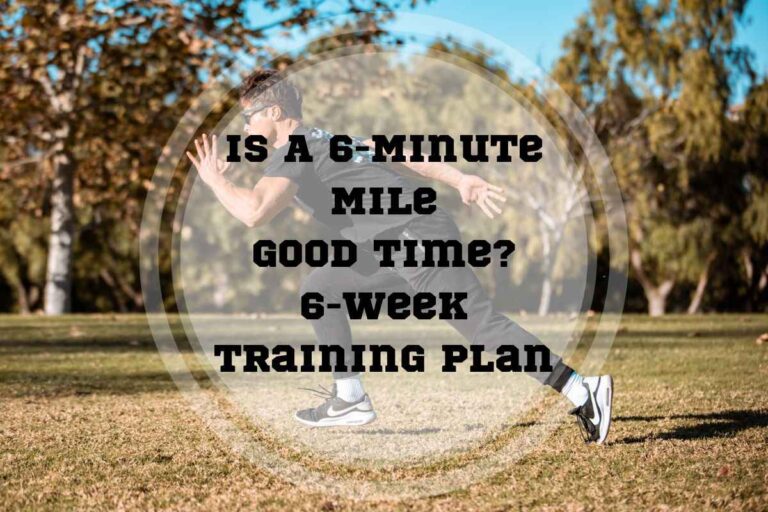How Many Miles Are In 15k – Exploring The 15k Distance
Have you done your first 10k and are looking for a new challenge? Or maybe you just started running and want to immediately engage in a long-distance trail? If yes, then you’re sure on the informing path of how many miles 15k is and how to do it.
Here, you will learn everything about the 15k race and how to effectively prepare for it. We’ll cover how long it will take you and present a practical training plan for the 15k distance.
Let’s start!
So, how many miles 15k is?
The 15k distance is exactly 9.3 miles, taking an average person from 19,000 to 23,000 steps. The 15k race in miles is a great opportunity for runners to increase their endurance or prepare for a half-marathon.
How Many Miles Are In 15k For Running?
If you want to run more than 10k and yet want to remain beside the half-marathon, then the 15k distance is what you should aim for. So, how long is the 15k race in miles? A 15k run presents exactly 9.3 miles. This distance is a perfect opportunity for runners hoping to increase their distance or planning their first half-marathon journey.

The 15k race is great for beginners wanting to push themselves, as it requires more training time and dedication than short-distance races. Also, it presents a great option for intermediate and advanced runners who do not have the time to train for a half-marathon or marathon.
If you were to walk this distance instead of running, you should know how long is a 15k and how many steps it will take. So, the average person takes around 2,000 to 2,500 steps per mile when walking briskly. With 9.3 miles, an average person will take 19,000 to 23,000 steps and more. This depends on the person’s stride length, height, and other factors.
This distance suits everyone who has previously engaged in running/walking, and this isn’t the first time they’re dealing with such a distance.

Pro Tip:
The day before the race, drink your baseline amount of fluids (male 16 cups while female 11 cups), and on race day, drink 16 more ounces of water when you wake up.
How Long Is a 15K Race?
After answering how many miles in a 15k are, let’s discuss more in detail about this distance. Running 10k involves reaching about 80% of your maximum effort level and heart rate. But when transitioning into a 15k race, this 80% effort will go down a bit (like let’s say 1-3% or so) because you have to adjust your pace and rhythm due to the bigger distance—and make it to the finish line.
Now let’s go ahead and find out how far a 15k is actually. Here, we’ll discuss the average time by age, fitness, and gender.

Average Time For A 15K Run By Age And Fitness – Man
| Age | Beginner | Intermediate | Advanced |
|---|---|---|---|
| 20 | 01:40:56 | 01:11:55 | 01:02:53 |
| 25 | 01:40:56 | 01:11:55 | 01:02:53 |
| 30 | 01:40:56 | 01:11:55 | 01:02:53 |
| 35 | 01:41:39 | 01:12:26 | 01:03:20 |
| 40 | 01:44:23 | 01:14:23 | 01:05:03 |
| 45 | 01:48:40 | 01:17:26 | 01:07:43 |
| 50 | 01:53:20 | 01:20:46 | 01:10:37 |
| 55 | 01:58:25 | 01:24:23 | 01:13:47 |
Average Time For A 15K Run By Age And Fitness – Women
| Age | Beginner | Intermediate | Advanced |
|---|---|---|---|
| 20 | 01:53:51 | 01:23:39 | 01:13:47 |
| 25 | 01:53:41 | 01:23:32 | 01:13:41 |
| 30 | 01:53:47 | 01:23:37 | 01:13:45 |
| 35 | 01:55:02 | 01:24:32 | 01:14:34 |
| 40 | 01:57:47 | 01:26:32 | 01:16:20 |
| 45 | 02:02:15 | 01:29:49 | 01:19:14 |
| 50 | 02:08:47 | 01:34:38 | 01:23:28 |
| 55 | 02:16:40 | 01:40:25 | 01:28:35 |
Let’s see the average pace by age, running form, and gender.
Average Pace (min/km) For A 15K Run By Age And Fitness – Man
| Age | Beginner | Intermediate | Advanced |
|---|---|---|---|
| 20 | 06:44 | 04:48 | 04:12 |
| 25 | 06:44 | 04:48 | 04:12 |
| 30 | 06:44 | 04:48 | 04:12 |
| 35 | 06:47 | 04:50 | 04:13 |
| 40 | 06:58 | 04:58 | 04:20 |
| 45 | 07:15 | 05:10 | 04:31 |
| 50 | 07:33 | 05:23 | 04:42 |
| 55 | 07:54 | 05:38 | 04:55 |
Average Pace (min/km) For A 15K Run By Age And Fitness – Women
| Age | Beginner | Intermediate | Advanced |
|---|---|---|---|
| 20 | 07:35 | 05:35 | 04:55 |
| 25 | 07:35 | 05:34 | 04:55 |
| 30 | 07:35 | 05:34 | 04:55 |
| 35 | 07:40 | 05:38 | 04:58 |
| 40 | 07:51 | 05:46 | 05:05 |
| 45 | 08:09 | 05:59 | 05:17 |
| 50 | 08:35 | 06:19 | 05:34 |
| 55 | 09:07 | 06:42 | 05:54 |
It’s important to know that you need to move at a pace where you can comfortably complete the distance. Avoid going too fast and then having to slow down on the second half of your run. The best approach on the 15k run in miles is to run a little slower than you feel you can and pick the pace you want at the end of the race.
Also, you can choose a walk/run combination, where you can run for 5 minutes and then do a 1-minute walk.
Subscribe to Our Running Newsletter!
Get free running tips from renowned professional athletes and discounts from top-notch brands.
How Long Does It Take To Prepare For A 15K Run?
Now that you know what is a 15k in miles, let’s talk about how long it will take you to prepare for the race. This depends on your fitness state, whether you’re a beginner dealing with the 15k run or an advanced runner.
Individuals with higher fitness levels could probably run 9.3 miles with little training. They might be sore the week after the race takes place, but they will probably finish it.
If you want to deal successfully with the 15k race, you should commit to at least 8-12 weeks of training. The time you need will vary depending on your running experience, but the 8-week period is the minimum needed to build up your endurance and running form.
You’ll be ready to race once you complete your training plan – and yes, you need it. Even advanced runners need a plan for training and achieving high results.

Pro Tip:
Be mindful of the weather – If it’s very cold in the morning, wear top layer clothes that you don’t mind taking off along the race as the day warms up.
6 Tips to Properly Prepare for a 15K Run
Besides dedicated training, preparing for a 15k race requires careful planning. You need to take care of everything in the process, such as your training regularity, nutrition, and the clothes you will wear. Let’s discuss the factors to consider when preparing to run the 15k race.
1. Plan Your Nutrition
Runners tend to plan their meals a full week before the race day to achieve optimal performance. Not only the week prior to the race, but your nutrition is an important part of preparing for the 15k race.
2. Choose The Right Clothes And Footwear
Don’t wear your new shoes and outfit on race day. Instead, assess the 15k run with the equipment you’ve been training all along. Be cautious enough not to risk your performance or dropping out due to the painful blister your new sneakers gave you. Always wear fitness clothing as it will feel light on you the whole race and won’t get heavier as you start to sweat.
3. Prepare Mentally
If you’re regularly thinking of how many miles is a 15k run with a doubt that you’re not good enough to make it, take your mental assessment seriously. Long-distance races are prepared mentally as well as physically. This is a challenge for you, and in order to complete it, you need to visualize yourself completing the 15k race.
4. Simulate The Race
During your last weeks of preparation, incorporate training runs that will mimic your race day. Behave like it’s already race day, practice running at your pace, and test all the strategies you’ve developed until now.

5. Keep Up With The Training Plan
Be consistent with your training. Consistent training is always more effective than rare and intense workouts. Stick to your training plan, and don’t skip the long runs – they are the most important in building the endurance you need for the race.
6. Focus On Pace And Speed
Even though this is a long-distance race, speed and pace work is very important. Your regimen should also consist of interval runs, tempo runs, and fartlek sessions to improve your overall stamina and speed.

Pro Tip:
Boost your carb intake 3 to 5 days before the race – keep your snacks and meal plated 50% carbohydrates. And give yourself 2 to 3 hours to eat your meal before going to bed.
Training Plan For Running 15K
15k is a demanding race, so you’ll need a serious training plan to keep up with this challenge. Here, we’ll present you with a training plan for runners with all kinds of abilities, from beginners to advanced ones.

Week 1
Starting out from week one, you should be patient with your training. The first week may be tough, but you need to stay consistent.
| Day | Training |
|---|---|
| Monday | Strength Training |
| Tuesday | 2-mile Run |
| Wednesday | Cross Training |
| Thursday | 2-mile Run |
| Friday | Rest Day |
| Saturday | 3-mile Long Run |
| Sunday | Fartlek Training |
Week 2
As for week 2, you’ll do three runs, but the third is a 3-mile run. In between, stay active and don’t skip the interval, cross, and fartlek training.
| Day | Training |
|---|---|
| Monday | Interval Training |
| Tuesday | 2-mile Run |
| Wednesday | Cross Training |
| Thursday | 2-mile Run |
| Friday | Rest Day |
| Saturday | 4-mile Long Run |
| Sunday | Fartlek Training |
Week 3
In week 3 try to not be overwhelmed and stay consistent. You should be aligned with your goal and keep up with your runs by now.
| Day | Training |
|---|---|
| Monday | Rest Day |
| Tuesday | 5-mile run |
| Wednesday | Interval training |
| Thursday | 2-mile Run |
| Friday | Fartlek training |
| Saturday | Cross training |
| Sunday | Long run – 5.5 miles |
Week 4
Week 4 will require you to run the long run of 4 miles, but to do that, you should go through the week being regular with your runs.
| Day | Training |
|---|---|
| Monday | Rest Day |
| Tuesday | Interval training |
| Wednesday | 3-mile run |
| Thursday | Fartlek Training |
| Friday | 6-mile run |
| Saturday | Rest Day |
| Sunday | Long Run – 4 miles |
Week 5
By week 5, you should train easily and slowly shift your mindset towards completing the 15k race. The long run should give you the confidence needed.
| Day | Training |
|---|---|
| Monday | Interval Training |
| Tuesday | 3.5-mile run |
| Wednesday | Rest Day |
| Thursday | 3.5-mile run |
| Friday | Cross Training |
| Saturday | Rest Day |
| Sunday | Long run – 6.5 miles |
week 6
In the sixth week of your training process, you should be able to complete three runs, two of which are 4-mile runs, and the long 5-mile one. You’re almost ready for the 15k distance.
| Day | Training |
|---|---|
| Monday | 4-mile run |
| Tuesday | Rest day |
| Wednesday | 4-mile run |
| Thursday | Cross training |
| Friday | Interval training |
| Saturday | Rest Day |
| Sunday | Long run – 7 miles |
week 7
This week, you should train easily and feel prepared to handle the race ahead of you. Your body is adapted to running, and you’ve developed good running mechanics.
| Day | Training |
|---|---|
| Monday | 4.5-mile run |
| Tuesday | Interval training |
| Wednesday | 4.5-mile run |
| Thursday | Rest day |
| Friday | Cross training |
| Saturday | Rest Day |
| Sunday | Long run – 7.5 miles |
Week 8
You’ll feel great this week because of your consistency and hard work. You’re ready to tackle this challenge ahead of you, same as your body.
| Day | Training |
|---|---|
| Monday | 5-mile run |
| Tuesday | Rest day |
| Wednesday | Interval training |
| Thursday | 5-mile run |
| Friday | Cross Training |
| Saturday | Rest Day |
| Sunday | Long run – 8 miles |
15 km vs Half Marathon
The 15k vs half marathon is a serious debate centering on distance and challenge. While a half marathon will test your endurance and mental readiness for the challenge, the 15k race is a balanced option for every runner seeking to step up. The half marathon length can be excruciating, so the runner’s logic is that you should go through the 15k race before engaging in a half marathon.

How Much Harder Is It to Run a 15K vs a 10K
While 10k requires a strong pace, 15k stands for prolonged endurance. The distance is noticeably increased, as the extra 5 kilometers may push runners beyond their comfort zone. Now that you know how far is a 15k run, you’re aware that it’s more demanding on the body than the 10k.
Also, training for a 15k is significantly harder than for a 10k—your lungs and tissues work harder and for an extended period.
Frequently Asked Questions (FAQs) About How Many Miles are in 15k?
Can You Run 15k In An Hour?
You’ll be ready for this challenge once you complete the training plan. However, you’ll need to maintain a pace of 4min/km, so it’s only possible if you’re a serious runner.
What Is The Strategy For Running A 15k?
The strategy for running the 15k distance includes consistency, following your training plan, and nutrition. Also, preparing mentally and choosing the right clothes and shoes help.
Summing It Up!
The 15k race offers a suitable challenge for both beginners and advanced runners. With the proper training plan, consistency, and careful nutrition planning, you’ll be ready for the 15k race quickly.
So, do you feel confident to tackle the 15k distance, or have you done it already? Tell us in the comments!
Also Read:
- How Long Does a 10K Spartan Race Take
- Bcaas for Runners
- Running Twice a Week
- Benefits of Sprinting
- Running After New Tattoo
- Running After Leg Day
- Best Running Shoes for Concrete
- 2 Miles Is How Many Steps
- Can a Woman Wear Men’s Running Shoes
References:
- Mariska van Sprundel, “Running and the Science of Mental Toughness”, “The MIT Press Reader”, https://thereader.mitpress.mit.edu/
- Phil Goulding, “What is interval training?”,”Nuffield Health” https://www.nuffieldhealth.com/
- Holly Martin, “Fartlek Training: What Is It, Benefits, Tips, and Workouts”, “The Run Experience”, https://therunexperience.com/ (February 3, 2023)
- Rachel Dermack, “Long-Distance Running: An Investigation Into its Impact on Human Health”, “The Pit Journal”, https://pitjournal.unc.edu/ (2015)
- Ewa Malchrowicz-Mośko, François Gravelle, Agata Dąbrowska, Patxi León-Guereño, “Do Years of Running Experience Influence the Motivations of Amateur Marathon Athletes?”, “National Library Of Medicine”, https://pubmed.ncbi.nlm.nih.gov/ (January 16, 2020)
- Tryntsje Fokkema, Ankie A.D.N. van Damme, Maarten W.J. Fornerod, Robert‐Jan de Vos, Sita M.A. Bierma‐Zeinstra, and Marienke van Middelkoop, “Training for a (half‐)marathon: Training volume and longest endurance run related to performance and running injuries”, “National Library Of Medicine”, https://www.ncbi.nlm.nih.gov/ (June 3, 2020)
If you have any questions or suggestions, you can contact us via email – [email protected]






